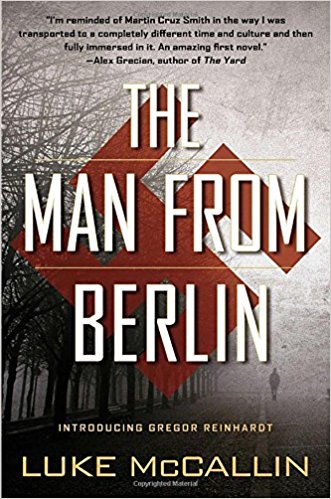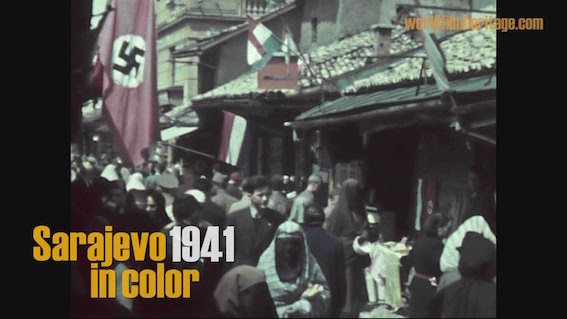Captain Gregor Reinhardt continues to struggle with his conscience in this entry to a police procedural series set in the German Wehrmacht in 1943. He is Abwehr officer, that is, Wehrmacht intelligence service, whose usual task is interrogating prisoners of war. He talks to them rather than beating them, and his makes him odd, but he gets enough results to be insulated from critics, though they circle. A successful detective in Berlin he entered the army to escape the thugs that the new regime of 1935 promoted, and its racial approach to identifying villains. Some escape.

He is in Sarajevo going about his business, trying to focus on the main things and ignore…. [much].
But he is despondent and depressed, his wife has died and he is estranged from his only son who has become a super Nazi. Is life worth living in this Dantesque universe, he might have asked, for he is learned, but he did not.

Then he is assigned a case to investigate and the old policing instincts are aroused, and he has a purpose each day. He meets the usual obstacles and obfuscations readers expect though they are heightened in this Balkan inferno. He presses on, though there are doubts. He meets some truly despicable people, including one of the late victims, a beautiful young woman film-maker who enjoyed torturing Jewish women in front of their children before filming their murders by her Ustaše comrades. If the supply of Jews was low, she would turn to Serbs for such fun.
The book offers a socio-politico topography of war time Yugoslavia, the Chetniks, the Red Partisans, the Ustaše, the Croat Army, the Italian occupation force, and the German, within whose ranks are many deep divides. Only the Italians seem to be civilised and they are a minor player. These groups make shifting formal and informal alliances. In the brew come some British advisors so the plot thickens.
It is a murder that Reinhardt must investigate. One of the victims was the woman film maker and that would be left to the civil police in the puppet state of Croatia, but also murdered a few steps from her was a German army lieutenant. It becomes a joint investigation with the Croat police for whom all acts of villainy, apart from their own, are done by Jews, Gypsies, Serbs, or Reds. Ergo find the nearest Jew and that is the culprit.
This plot is very thick and it just gets thicker. There is much about the city of Sarajevo, its Ottoman and Austrian pasts, its troubled present, and its byways. The divides among the Germans are many and varied. Their are personal animosities, unit competitions, status consciousness to an insane degree, service rivalries, venal as well as moral corruption and incompetence, and the usual assortment of thugs and bullies assembled by krimi writers, most of them wearing uniforms in this instance.
The comeuppance of the primary bully was a delight. (Where do I get one of those Reinhardt specials?) There is also a captivating portrait of a German general with something of Erwin Rommel in him, a war lover. He is in a word, charismatic. Even the jaded and cynical Reinhardt feels the urge to follow where this man leads but tries to resist it, and then realises all is not as it seems. The blue herrings are piled up and neither of the short-priced favourites was the perpetrator. That is enough of a spoiler.
The story Reinhardt tells of one of his famous cases in Berlin is nicely done. He tells the story but suppresses much of the truth, which will sound familiar to anyone who has worked in a large organisation, the backsliding, the backstabbing, the blinding incompetence, the stubborn resistance to the obvious, the incapacity to act in a coordinated fashion. The usual. Then add to that the racial elements and the brew goes from noxious to toxic.

This is the third novel I have read of late featuring such a military police office. Perhaps inspired long ago by ‘The Night of the Generals.’ That is not counting Bernie Gunther whose career I have not followed.
Skip to content
